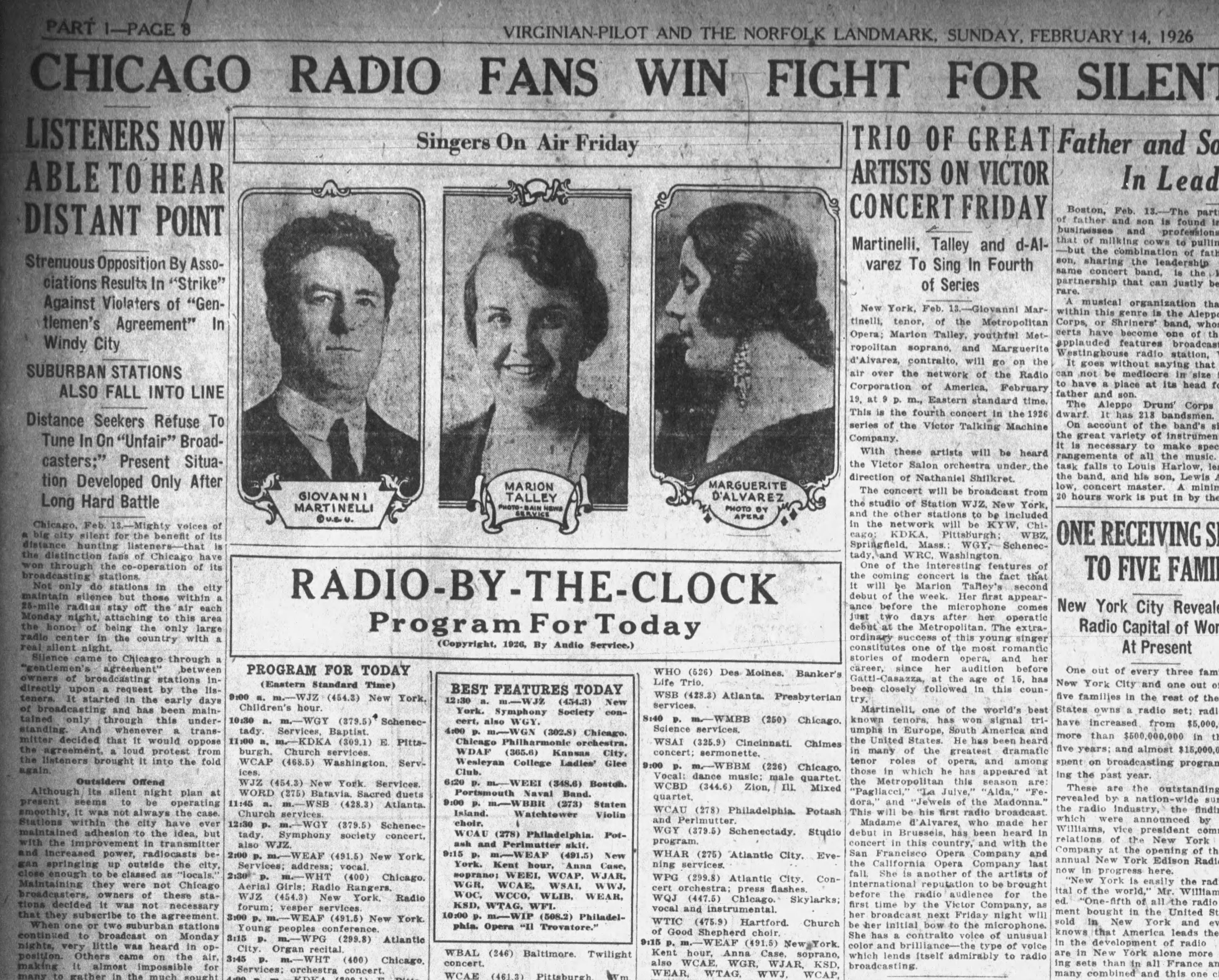I’d guess that this exposure

was followed by a cloud of magnesium smoke filling the studio’s air. The flash was a single-source illumination, and it reflected back at maximum shine from the pretty singer on the right. In the Library of Congress’s George Grantham Bain Collection, https://www.loc.gov/pictures/item/2014719169/, it has eventuated in an array of blacks and whites captioned only “D’Alvanez — Martinelli — Tully.” It isn’t dated. What it is is not two women and a man as such, in general, but an image of two woman and a man under specific but unrevealed circumstances. There it is to be seen, not known. In the unrevealed it is solely glare and shadow, striped broadcloth and glittery silk; solely a patterning.
Furthermore, two of the three names in the caption turn out to be historically corrupt. But they and the image of the microphone have still left an uncorrupted remainder attached to an archive of recordings on pressed shellac, and from that entry it’s possible to backtrack a historiography and reconstruct what we have seen into a readable, datable history.
Read once more, then, the name identified as “Tully” turns out to have belonged in the year 1926 to Marion Talley, a teenage soprano who as of her moment on a red Victor label was briefly a star. On its red record, her voice can still be experienced in archival black and white.
But now it can be experienced only as a noise track captured by a single-source microphone and confined to a carceral segment of the audio spectrum. Even in there, too, the shellac grooves of its habitus have undergone metamorphosis. Rossini embodied the idea of his Rosina in a mezzo-soprano voice with embellishments going low, not high, and recording practice in the twenty-first century tends to bypass Marion Talley’s twentieth in a nostalgic joke played on the way back down to a fantasy of the nineteenth. See the current event’s knowing grins.
See the fish silently performing themselves.
Smile in silence for anything that nevertheless may remain of the memory voices of Marguerite, Giovanni, and Marion,
